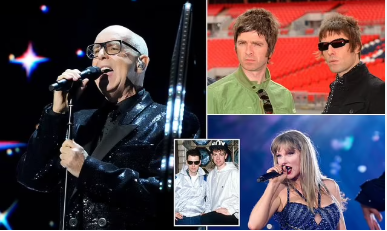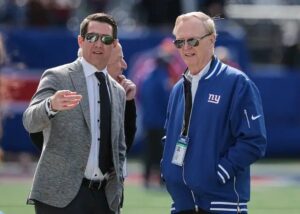
Breaking: Pet Shop Boys’ Neil Tennant Slams Current Popular Music as ‘Narcissistic and Processed’
In a bold and controversial statement, Neil Tennant, one half of the iconic British duo Pet Shop Boys, has criticized the state of contemporary popular music, dubbing it “narcissistic” and “processed.” Tennant, known for his sharp wit and introspective lyrics, made these remarks in a recent interview, where he also threw some shade at prominent acts such as Oasis and Taylor Swift, while emphatically declaring the 1980s as “the golden age of pop.”
Tennant’s comments come at a time when pop music is increasingly dominated by highly commercialized and formulaic trends, with a growing reliance on digital production, auto-tune, and an obsession with image. While Tennant did not name specific artists in every instance, his pointed remarks about current chart-toppers reflect a broader discontent with the industry’s direction.
“I feel that a lot of popular music today is focused more on the artist’s personal brand than on the actual music itself,” Tennant said, describing modern pop as “narcissistic.” He went on to suggest that the genre has become more about the image and persona of the artist rather than offering any deeper cultural or emotional substance. His critique extends beyond the music itself, criticizing the way artists are marketed and consumed in the digital age.
Tennant also directed some pointed criticism towards well-known bands of the past and present. He dismissed Oasis, a group known for their anthemic Britpop sound and often combative attitude, as representative of a certain type of shallow, stadium-sized rock that, in Tennant’s eyes, has done little to advance the art of music. “Oasis were just playing loud, rebellious rock, but it was never really innovative. It was more about the attitude than the actual musical progression,” Tennant remarked. While Oasis dominated British charts in the 1990s with hits like Wonderwall and Don’t Look Back in Anger, Tennant’s criticism underscores his belief that music should push boundaries and explore new horizons rather than simply riding on a familiar formula.
In the same vein, Tennant also weighed in on Taylor Swift, one of the most successful artists of the past decade. While acknowledging Swift’s impressive songwriting ability and business acumen, Tennant expressed skepticism over the emotional depth and authenticity of mainstream pop today. “It feels like a lot of it is manufactured to be relatable, but it’s too polished. It lacks the rawness that made music feel revolutionary in the past,” he said. Though Swift’s transition from country to pop has made her a cultural juggernaut, Tennant seems to believe that her success is built more on marketing and a crafted image than on any real innovation in music.
For Tennant, the 1980s remain the definitive “golden age of pop.” Reflecting on the era when he and his musical partner Chris Lowe made their mark, Tennant celebrated the decade’s ability to merge experimental electronic sounds with mainstream pop sensibilities. “The 1980s were a time when music was truly groundbreaking,” Tennant reminisced. “You had artists like David Bowie, Madonna, Kraftwerk, and of course, the Pet Shop Boys, all blending art and pop culture in a way that hadn’t been done before.” The 1980s, for Tennant, represented a time of bold musical experimentation, where pop became not just a commercial product but a cultural force that could influence fashion, politics, and society at large.
While Tennant’s comments may stir debate among fans and critics alike, they speak to the enduring legacy of artists like the Pet Shop Boys, who have always placed artistic integrity and innovation at the forefront of their careers. Whether one agrees with Tennant’s assessment or not, his critique raises important questions about the state of popular music today and whether it is still capable of evolving in the ways it once did.







